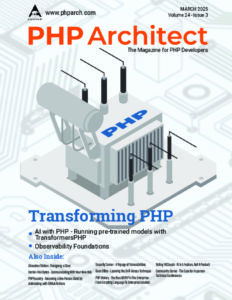Envato: Future of WordPress
Over at the Envato blog, Natasha Postolovski has a thorough look at the future of WordPress.
Outside of this, the ever-passionate WordPress community is a hotbed for debates on where WordPress should go from here. With 22% of websites running on WordPress, a vibrant open-source community, amazing themes and plugins and a developer-friendly mindset, WordPress is stronger today than it has ever been.
We’ve seen newer, more-focused blogging platforms like Ghost and Medium come into use. Services like SquareSpace let users create sites easily. Static-site generators including PHP’s own Sculpin let tech savy users build no-frills sites that are cheap to host and scale, too. As the post states, WordPress needs to decide what it is.
WordPress’s commitment to backwards compatibility means that radical overhauls are not possible. Instead, incremental improvements to the admin interface and the underlying PHP code base will come with each new release.
In the meantime, competition has pushed the WordPress community to build more compelling, easier-to-use tools (via plugins) for content editors and designers to use. Developers are creating and selling innovative plugins to provide cutting-edge features like Visual Composer, for building pages using a Drag & Drop interface.
Of particular interest to me, she touches on the widespread perception of PHP and PHP developers, and how that has made it hard to attract programmers from outside the WordPress community. Unfortunately, the adherence to backwards compatibility prevents WordPress from using new features added to PHP in recent releases. This is definitely a barrier that prevents many PHP developers from contributing. Using traits and namespaces in the core code, for example, would help organize it better and encourage best practices. At least plugin developers are finding way to use them, like in this example.
Nonetheless, I’d have to agree that the future of WordPress is bright. The community is very active and is using it in new and interesting ways. It’ll be interesting to see how it meets the challenges ahead. Learn more & chat about WordPress and it’s future at php[world] this November.




Leave a comment
Use the form below to leave a comment: